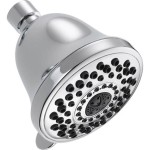Unveiling the Science Behind Sulfur Smell in Bathroom Sink Faucets
If you've ever encountered an unpleasant sulfur odor emanating from your bathroom sink faucet, you're not alone. This common issue can be attributed to several factors and requires proper attention to resolve. Delving into the science behind this phenomenon will provide insights into effective troubleshooting and remediation.
Sources of Sulfur Smell
The sulfur smell in bathroom sink faucets typically originates from the presence of sulfur-reducing bacteria within the plumbing system, particularly in water heaters and drain pipes. These bacteria metabolize organic matter, producing hydrogen sulfide gas, which has a distinctive "rotten egg" odor. Corrosion within the pipes can also contribute to the sulfur smell, releasing sulfur compounds into the water supply.
Impact of Water Conditions
The composition of water can influence the prevalence of sulfur-reducing bacteria. Water with low oxygen levels, often found in well water, creates an ideal environment for these bacteria to thrive. The presence of organic matter, such as decaying vegetation or animal waste, further supports their growth and subsequent odor production.
Troubleshooting and Resolution
Addressing the sulfur smell requires a multifaceted approach. Regular cleaning and disinfection of drain pipes, traps, and faucets can remove organic matter and inhibit bacterial growth. Using enzymatic drain cleaners formulated to break down organic substances can further reduce odor sources.
If the issue persists, consider inspecting and cleaning the water heater. Sediment buildup and corrosion within the tank can harbor sulfur-reducing bacteria. Flushing the water heater and cleaning the tank can eliminate the odor and improve its performance.
Alternative Solutions
In some cases, the sulfur smell may stem from a deeper issue with the plumbing system, requiring professional intervention. A qualified plumber can diagnose the root cause of the odor and implement appropriate solutions, such as replacing corroded pipes or installing an aeration system to increase oxygen levels in the water.
Conclusion
Sulfur smell in bathroom sink faucets is a common problem caused by sulfur-reducing bacteria and corrosion. Understanding the sources of this odor and applying targeted troubleshooting measures, such as cleaning and disinfection, can effectively resolve the issue. If the problem persists or worsens, seeking professional assistance is advisable to ensure a comprehensive solution.

Why Water Smells Like Sulfur In One Faucet

Water Smells Like Sulfur In One Faucet Mr Kitchen Faucets

Why Your Water Smells Like Rotten Eggs Sierra Air Conditioning Plumbing

Why A Drain Smells Like Rotten Eggs Or Sulfur Mr Rooter Plumbing

Smelly Water Could Be A Sign Of Serious Trouble

What To Do When Your Drains Smell Like Rotten Eggs Black Haak

How To Treat Smelly Water Finkens
There Is A Foul Rotten Egg Odor Coming From The Second Floor Bathroom Sinks In My House Whenever I Run Hot Water We Ve Tried Some Home Remedies For It But They

Does Your Water Smell Like Rotten Eggs Treatment Test

Sulfur Smell In Your Drain Poole S Plumbing Raleigh Nc Plumbers
Related Posts







